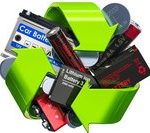This year is already on target to be the warmest ever in recorded history, causing raging wildfires, fires, droughts, flooding and extreme weather. Scientists warn this may be just the beginning of global ministry. CNN explores. (Photo: Takver, Creative Commons)









